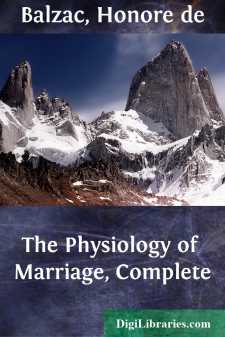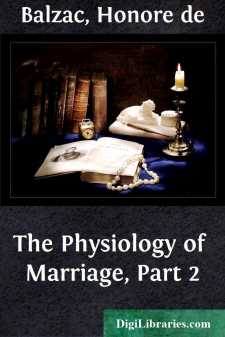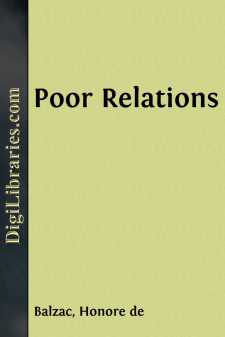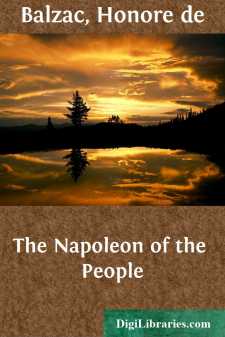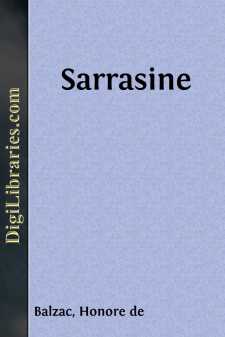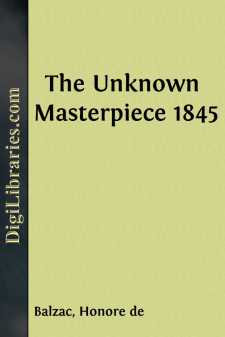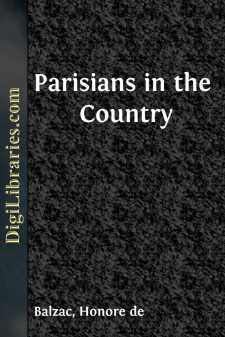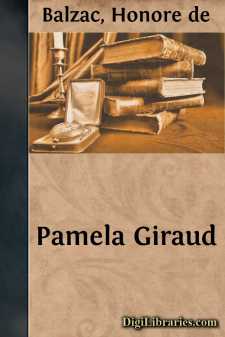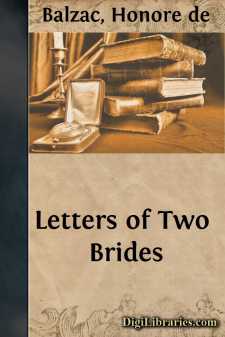Categories
- Antiques & Collectibles 13
- Architecture 36
- Art 48
- Bibles 22
- Biography & Autobiography 813
- Body, Mind & Spirit 142
- Business & Economics 28
- Children's Books 15
- Children's Fiction 12
- Computers 4
- Cooking 94
- Crafts & Hobbies 4
- Drama 346
- Education 46
- Family & Relationships 57
- Fiction 11829
- Games 19
- Gardening 17
- Health & Fitness 34
- History 1377
- House & Home 1
- Humor 147
- Juvenile Fiction 1873
- Juvenile Nonfiction 202
- Language Arts & Disciplines 88
- Law 16
- Literary Collections 686
- Literary Criticism 179
- Mathematics 13
- Medical 41
- Music 40
- Nature 179
- Non-Classifiable 1768
- Performing Arts 7
- Periodicals 1453
- Philosophy 64
- Photography 2
- Poetry 896
- Political Science 203
- Psychology 42
- Reference 154
- Religion 513
- Science 126
- Self-Help 84
- Social Science 81
- Sports & Recreation 34
- Study Aids 3
- Technology & Engineering 59
- Transportation 23
- Travel 463
- True Crime 29
Sort by:
by:
Honore de Balzac
INTRODUCTION "Marriage is not an institution of nature. The family in the east is entirely different from the family in the west. Man is the servant of nature, and the institutions of society are grafts, not spontaneous growths of nature. Laws are made to suit manners, and manners vary. "Marriage must therefore undergo the gradual development towards perfection to which all human affairs...
more...
by:
Honore de Balzac
"Marriage is not an institution of nature. The family in the east is entirely different from the family in the west. Man is the servant of nature, and the institutions of society are grafts, not spontaneous growths of nature. Laws are made to suit manners, and manners vary. "Marriage must therefore undergo the gradual development towards perfection to which all human affairs submit." These...
more...
by:
Honore de Balzac
A TREATISE ON MARITAL POLICY. When a man reaches the position in which the first part of this book sets him, we suppose that the idea of his wife being possessed by another makes his heart beat, and rekindles his passion, either by an appeal to his amour propre, his egotism, or his self-interest, for unless he is still on his wife's side, he must be one of the lowest of men and deserves his fate....
more...
by:
Honore de Balzac
INTRODUCTION La Cousine Bette was perhaps the last really great thing that Balzac did—for Le Cousin Pons, which now follows it, was actually written before—and it is beyond all question one of the very greatest of his works. It was written at the highest possible pressure, and (contrary to the author's more usual system) in parts, without even seeing a proof, for the Constitutionnel in the...
more...
by:
Honore de Balzac
THE NAPOLEON OF THE PEOPLE Napoleon, you see, my friends, was born in Corsica, which is a French island warmed by the Italian sun; it is like a furnace there, everything is scorched up, and they keep on killing each other from father to son for generations all about nothing at all—'tis a notion they have. To begin at the beginning, there was something extraordinary about the thing from the...
more...
by:
Honore de Balzac
SARRASINE I was buried in one of those profound reveries to which everybody, even a frivolous man, is subject in the midst of the most uproarious festivities. The clock on the Elysee-Bourbon had just struck midnight. Seated in a window recess and concealed behind the undulating folds of a curtain of watered silk, I was able to contemplate at my leisure the garden of the mansion at which I was passing...
more...
by:
Honore de Balzac
I—GILLETTE On a cold December morning in the year 1612, a young man, whose clothing was somewhat of the thinnest, was walking to and fro before a gateway in the Rue des Grands-Augustins in Paris. He went up and down the street before this house with the irresolution of a gallant who dares not venture into the presence of the mistress whom he loves for the first time, easy of access though she may be;...
more...
by:
Honore de Balzac
INTRODUCTION I have sometimes wondered whether it was accident or intention which made Balzac so frequently combine early and late work in the same volume. The question is certainly insoluble, and perhaps not worth solving, but it presents itself once more in the present instance. L'Illustre Gaudissart is a story of 1832, the very heyday of Balzac's creative period, when even his pen could...
more...
by:
Honore de Balzac
ACT I SCENE FIRST (Setting is an attic and workshop of an artificial flower-maker. It ispoorly lighted by means of a candle placed on the work-table. Theceiling slopes abruptly at the back allowing space to conceal a man.On the right is a door, on the left a fireplace. Pamela is discoveredat work, and Joseph Binet is seated near her.) Pamela, Joseph Binet and later Jules Rousseau. PamelaMonsieur Joseph...
more...
by:
Honore de Balzac
I. LOUISE DE CHAULIEU TO RENEE DE MAUCOMBE. PARIS, September. Sweetheart, I too am free! And I am the first too, unless you have written to Blois, at our sweet tryst of letter-writing. Raise those great black eyes of yours, fixed on my opening sentence, and keep this excitement for the letter which shall tell you of my first love. By the way, why always "first?" Is there, I wonder, a second...
more...


